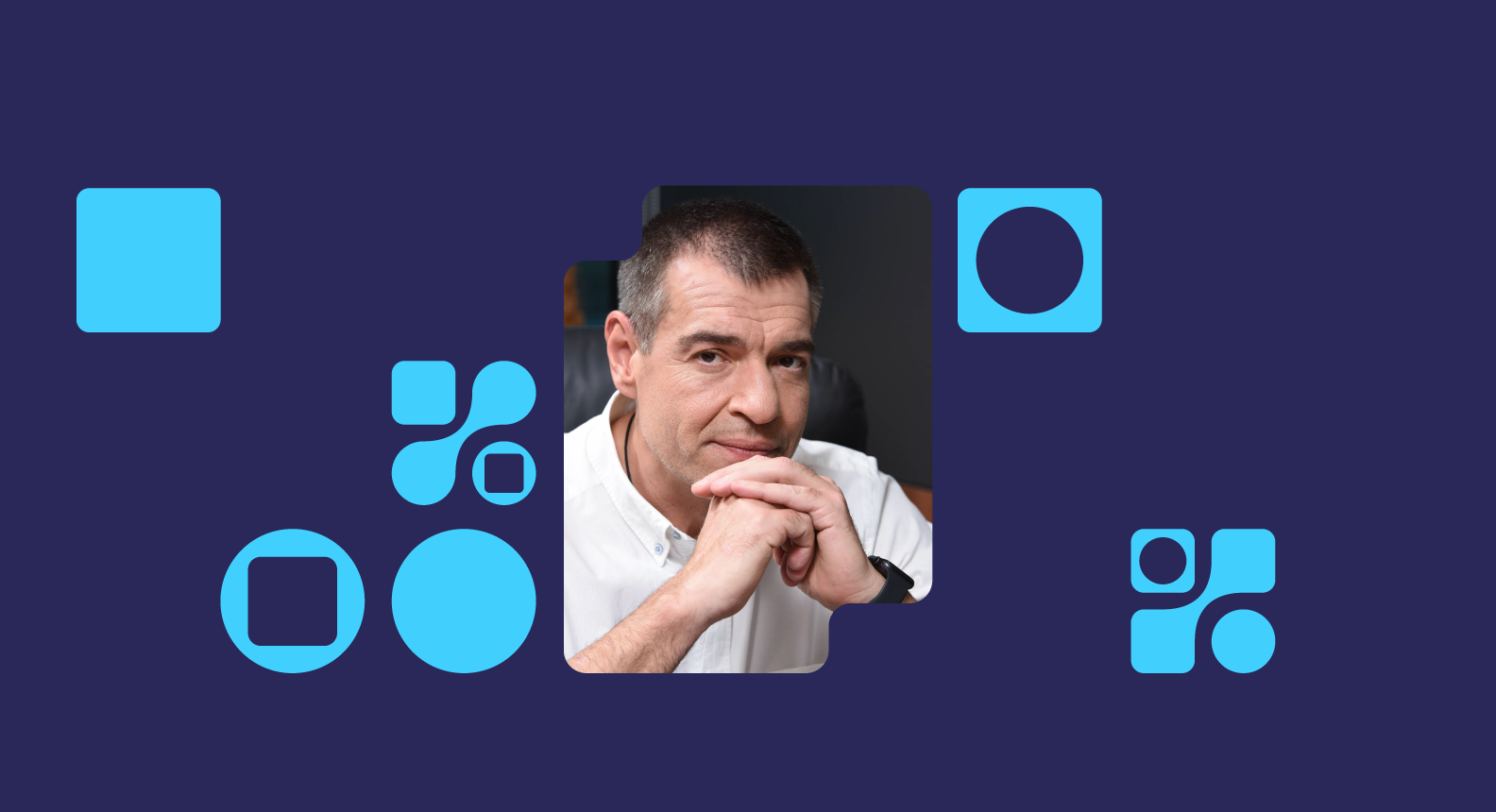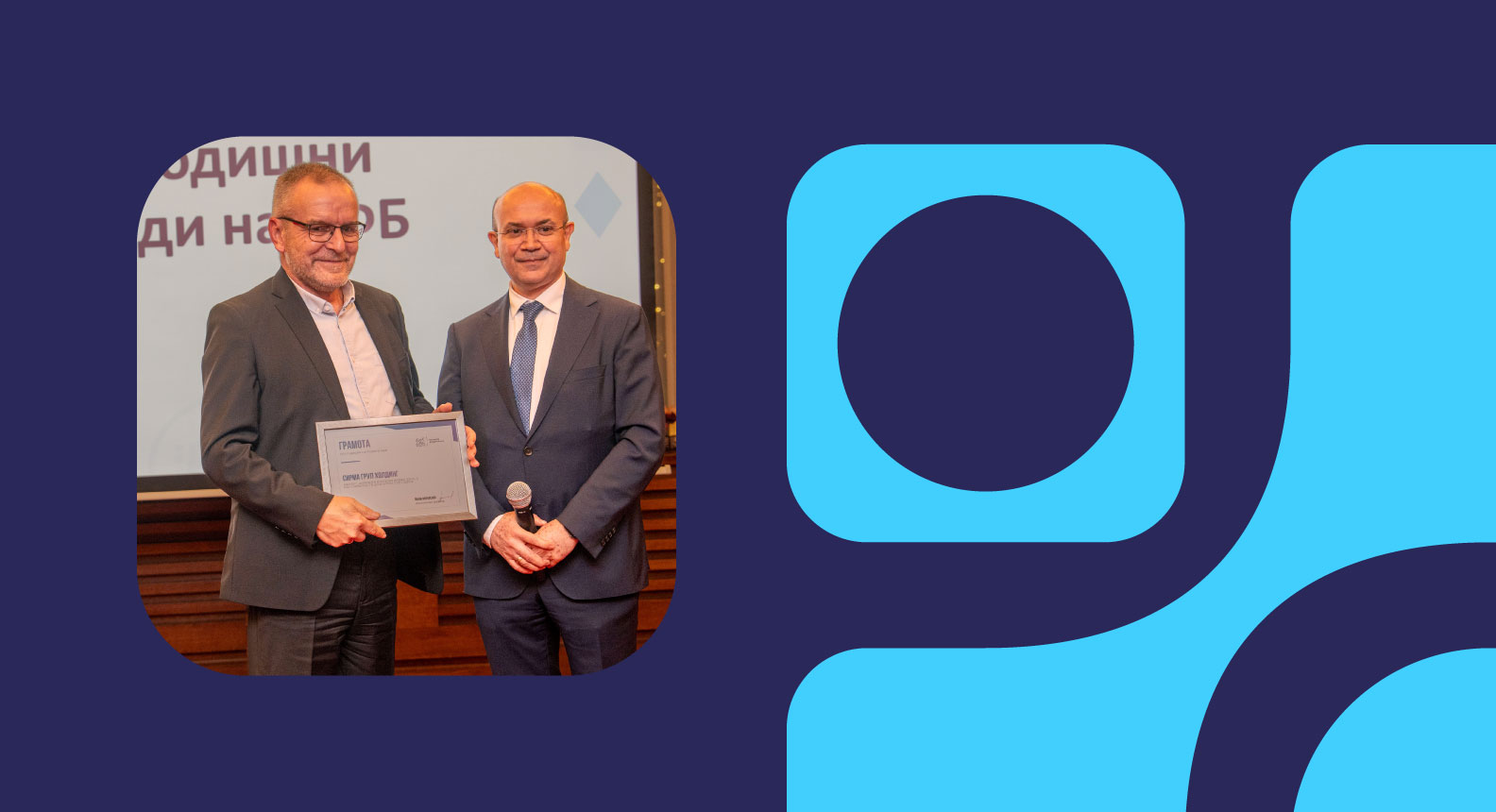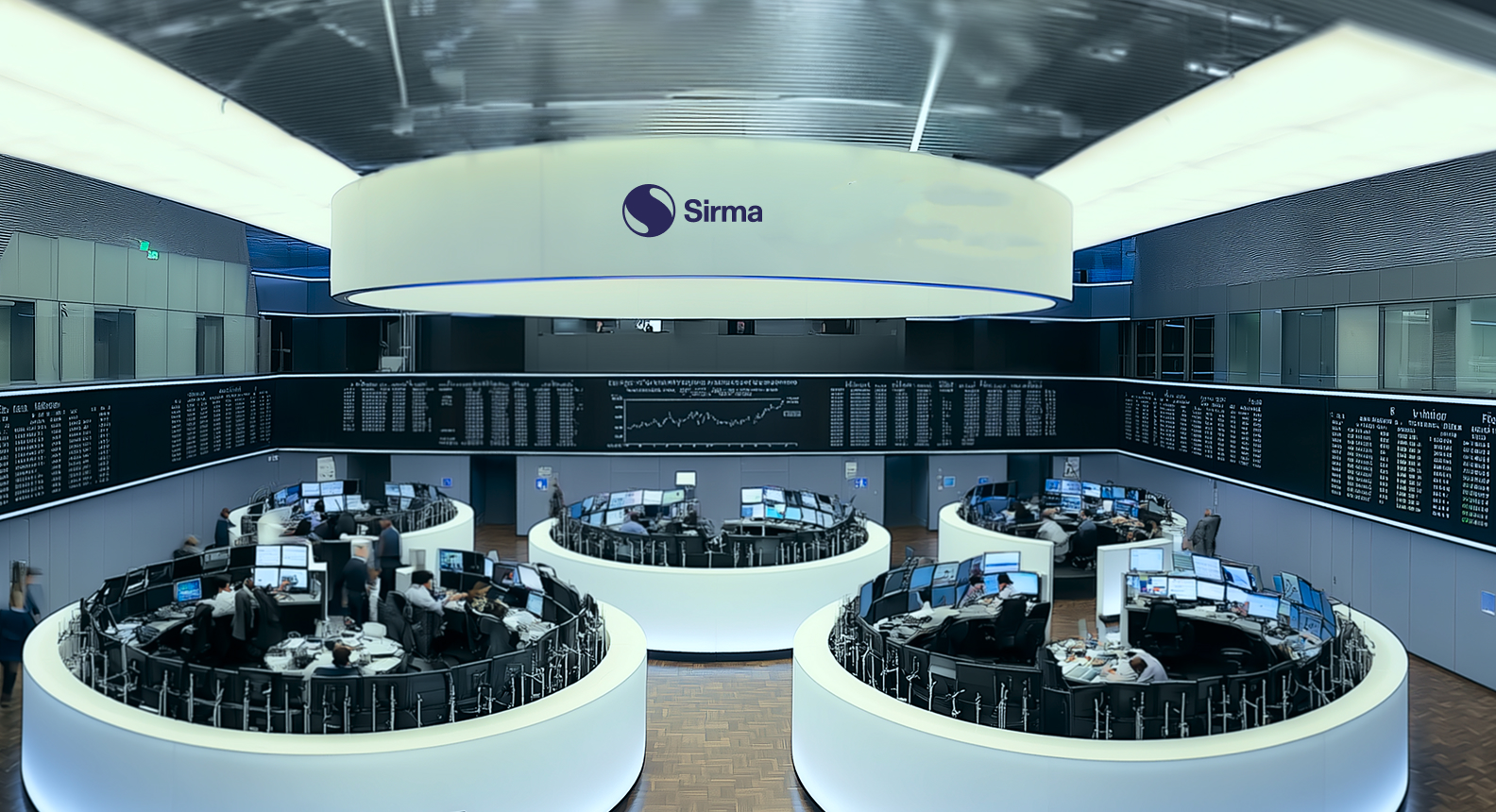Tsvetan Alexiev, CEO of Sirma Group Holding AD, featured in Digitalk 101 interview, discusses the corporate vision, innovative potential, and the company’s strategy for maintaining international growth along with changes in organisational development (read the full transcript from Bulgarian).
Today, everyone is talking about artificial intelligence (AI). For Sirma, AI is not just a trend but part of its identity. What sets Sirma apart from its competitors?
More than three decades ago, we founded Sirma with a bold and visionary ambition: to explore and create value through the application of artificial intelligence. The name we started, Sirma AI, reflected this ambition at a time when AI was still in its early stages - primarily limited to expert systems and emerging experiments with neural networks. Some of our earliest projects, including pioneering AI work for the Canadian government, ignited a passion that has since been embedded in the DNA of our company.
Over the years, we have initiated and delivered numerous innovations in products and services; however, AI has remained a key part of our strategic horizon. Even when it was not in the spotlight, we consistently integrated AI thinking into our solutions, striving to be ahead and offer smarter, more efficient, and adaptive technologies.
Today, AI is not just a trend - it is the defining force shaping the future of every organisation. We believe every enterprise will inevitably become a symbiotic system of humans and intelligent agents. This AI deeply understands the organisation, defines and executes tasks, optimises processes, and enhances human productivity. This transformation will distinguish leaders confident in the future from the rest.
Our strategic vision is to position Sirma as a leader in AI-driven corporate transformation over the next five years.
How is Sirma coping with the challenging geopolitical and economic environment?
In 2025, the company celebrates its 33rd anniversary, demonstrating its maturity by surpassing the threshold of 100 million BGN in consolidated revenue for the 2024 financial year. This record growth represents an increase of approximately 24% compared to the previous year and a 130% increase in EBITDA. Impressively, this milestone was achieved during the year of our most extensive corporate restructuring and amid a deteriorating international economic environment.
The past three years have been pivotal for Sirma, marked by acquisitions, restructuring, and the consolidation of subsidiaries under a unified brand. We have optimised our business lines, portfolio of technology services, products, and clients. The restructuring is already yielding positive results. We observe a synergy effect in resource optimisation and profit growth. This success highlights our potential to expand our business in the coming years.
At the end of May, you presented excellent financial results. What are the reasons behind them?
Unlike many technology companies, in Q1 2025, we reported an impressive revenue growth of 34.8%. This builds on our strong performance from last year (Q2 2025 data has not yet been published). The reason is our strategic reorientation towards high value-added services, especially in AI and automation of financial and administrative processes. Almost half of the company’s Q1 revenue comes from this segment, which includes contracts with public and corporate clients in Europe related to the digitalisation of various services. The result is over 32 million BGN revenue for Q1. We also have a presence in North America, working on several projects with fintech clients from New York, although it still represents a smaller share of the total portfolio.
Within one year, our shares have risen by nearly 50%. Our Q1 2025 financial report sent a strong message to investors - scaling is underway and accelerating. At the beginning of May, we also announced plans to list internationally via the EuroBridge segment of Börse Frankfurt, which brings prestige and opens doors to more accessible financing for future deals. Successfully positioning Sirma on the German stock market will increase the company’s visibility within two years after listing.
What are your immediate goals for Sirma’s development?
For the current year, we aim to achieve 60 million EUR in revenue, increase profitability, successfully list on the Frankfurt Stock Exchange by early 2026, and reach 100 million EUR in revenue within 2-3 years.
What are the main pillars of the new growth strategy you recently announced? What will you focus on to achieve these goals?
The last decade has witnessed a significant shift toward digital transformation. Paradoxically, despite this dominant trend, many organisations remain locked in rigid and closed software systems. These systems were not designed for seamless integration with the AI-driven “brains” now entering companies. We at Sirma see this as a historic opportunity, and our mission is to lead organisations on their path to integrating AI technologies.
To fulfil this mission, we launched Sirma Enterprise AI Core - an advanced AI platform that gradually integrates every aspect of our company: human resources, legal affairs, operations, supply chain, and finance. It is powered by a standard large language model (LLM), enhanced with retrieval, vectorisation, and storage mechanisms (RAG), an agentic architecture, and a toolkit based on standard protocols for communication between AI modules. Our AI Core is already learning, interacting, and improving our internal processes. Within three years, Sirma itself will become a true hybrid organisation - a team of humans and AI working in synergy.
Our goal with this project is to build a technological ecosystem for AI integration within any organisation, to test it with our data and processes. This will enable us to establish a working methodology for AI transformation, allowing us to confidently consult, lead, and transform our clients into companies that successfully leverage AI.
Very soon (approximately a year), we will launch parts of our Sirma Enterprise AI Core technologies as a SaaS model for external clients. In the medium term, the combination of technology and expertise will position us both as a provider and implementer of AI solutions. We believe that subscription sales to Sirma Enterprise AI Core will start generating significant recurring revenue over the next 3-5 years.
Our growth will come from both organic development and active investment in AI, as well as from acquisitions of suitable companies with expertise in economic sectors overlapping with our specialisation - profitable software firms with revenues ranging from 5 to 20 million euros and up to 300 employees, mainly in finance, healthcare, and industrial automation. This sends a clear signal to the investment community, which has long been seeking Bulgarian companies with growth profiles and expansion strategies beyond the local market.
How do you see Sirma’s role as a technological leader in Southeast Europe over the next decade?
Our core offering over the next five years will be to help clients design and build their own corporate AI cores, open their systems to AI integration, and gradually link processes one by one into a living, intelligent ecosystem. This is far beyond traditional software engineering—we are becoming consultants, strategists, and creators of AI ecosystems.
We will not limit ourselves to the current verticals - the methodology, tools, and platform-oriented approach we have developed are designed to be universally adaptable. This will make Sirma the preferred partner for any organisation ready to transform into an intelligent enterprise. Our ambition is not confined to leadership in Southeast Europe. Our goal is to be a leading company driving AI-business integration across the European market.
What message would you like to send to your investors and partners in light of the new strategy and listing?
I believe Sirma is on the right path and, most importantly, at the right time. A significant transformation is beginning in the IT business. The integration of AI into all business processes and social activities appears irreversible. IT companies that do not adapt quickly will find it increasingly difficult to survive in the new reality. We are already witnessing large IT companies making mass layoffs. The IT industry will not die or shrink, but it will undergo a significant transformation.
We are already seeing a demand for new types of expertise, and new roles related to AI are emerging within IT organisations. Sirma’s position is unique - it is neither a small company that could not afford to invest in change, nor is it too large to be slow and cumbersome.
As we embark on a new phase of development in the IT industry, we do so with great momentum, drawing on our extensive history, knowledge, and technology. I am confident in our success and believe we will capture a significant share of the European AI migration market. After dedicated effort, proof of performance, and positive results, I am optimistic that we will succeed on the Frankfurt Stock Exchange. Within the next two to three years, we aim to secure an additional round of capital to support our growth. Everyone at Sirma is convinced that we are on the right path and is inspired and enthusiastic about our future.


